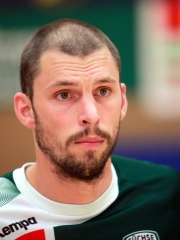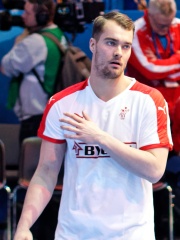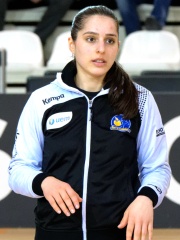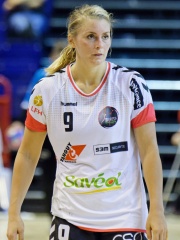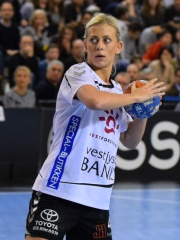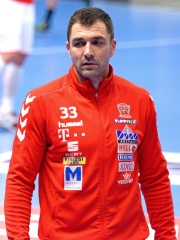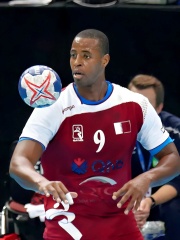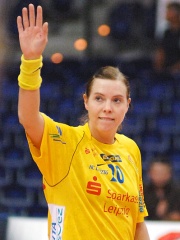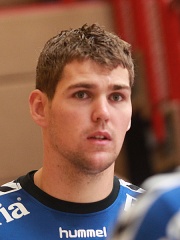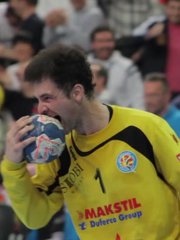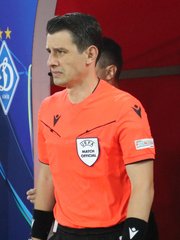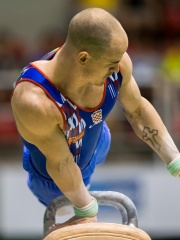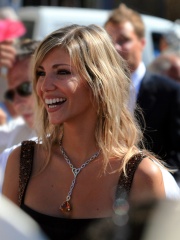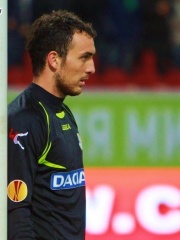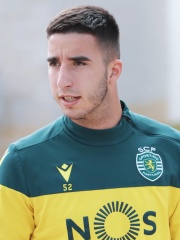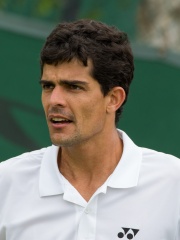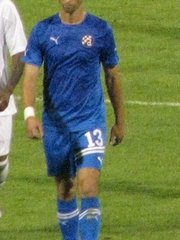Handball Player
Alexandrina Cabral
1986 - today
EN.WIKIPEDIA PAGE VIEWS (PV)
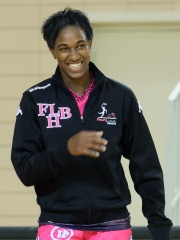
 Alexandrina Cabral
Alexandrina Cabral
Her biography is available in 15 different languages on Wikipedia. Alexandrina Cabral is the 328th most popular handball player (down from 239th in 2024), the 603rd most popular biography from Portugal (down from 543rd in 2019) and the most popular Portuguese Handball Player.
Memorability Metrics
Page views of Alexandrina Cabral by language
Among Handball Players
Among handball players, Alexandrina Cabral ranks 328 out of 420. Before her are Roberto García Parrondo, Fredrik Petersen, Casper Ulrich Mortensen, Marina Rajčić, Isabelle Gulldén, and Nathalie Hagman. After her are Renato Sulić, Rafael Capote, Else-Marthe Sørlie Lybekk, Gøril Snorroeggen, Jakov Gojun, and Darko Stanić.
Most Popular Handball Players in Wikipedia
Go to all RankingsRoberto García Parrondo
1980 - Present
HPI: 40.33
Rank: 322
Fredrik Petersen
1983 - Present
HPI: 40.29
Rank: 323
Casper Ulrich Mortensen
1989 - Present
HPI: 40.29
Rank: 324
Marina Rajčić
1993 - Present
HPI: 40.27
Rank: 325
Isabelle Gulldén
1989 - Present
HPI: 40.26
Rank: 326
Nathalie Hagman
1991 - Present
HPI: 40.22
Rank: 327
Alexandrina Cabral
1986 - Present
HPI: 40.22
Rank: 328
Renato Sulić
1979 - Present
HPI: 40.19
Rank: 329
Rafael Capote
1987 - Present
HPI: 40.17
Rank: 330
Else-Marthe Sørlie Lybekk
1978 - Present
HPI: 40.17
Rank: 331
Gøril Snorroeggen
1985 - Present
HPI: 40.13
Rank: 332
Jakov Gojun
1986 - Present
HPI: 40.12
Rank: 333
Darko Stanić
1978 - Present
HPI: 40.08
Rank: 334
Contemporaries
Among people born in 1986, Alexandrina Cabral ranks 1,008. Before her are Nikola Petković, Nazik Avdalyan, Abbos Atoev, Francisco Montañés, Halil Umut Meler, and Rudy Gay. After her are Filip Ude, Mario Rondón, Bae Seul-ki, Oriol Riera, Alexandra Rosenfeld, and Željko Brkić.
Others Born in 1986
Go to all RankingsNikola Petković
SOCCER PLAYER
1986 - Present
HPI: 40.25
Rank: 1,002
Nazik Avdalyan
ATHLETE
1986 - Present
HPI: 40.24
Rank: 1,003
Abbos Atoev
BOXER
1986 - Present
HPI: 40.24
Rank: 1,004
Francisco Montañés
SOCCER PLAYER
1986 - Present
HPI: 40.24
Rank: 1,005
Halil Umut Meler
REFEREE
1986 - Present
HPI: 40.23
Rank: 1,006
Rudy Gay
BASKETBALL PLAYER
1986 - Present
HPI: 40.22
Rank: 1,007
Alexandrina Cabral
HANDBALL PLAYER
1986 - Present
HPI: 40.22
Rank: 1,008
Filip Ude
GYMNAST
1986 - Present
HPI: 40.21
Rank: 1,009
Mario Rondón
SOCCER PLAYER
1986 - Present
HPI: 40.19
Rank: 1,010
Bae Seul-ki
SINGER
1986 - Present
HPI: 40.17
Rank: 1,011
Oriol Riera
SOCCER PLAYER
1986 - Present
HPI: 40.16
Rank: 1,012
Alexandra Rosenfeld
CELEBRITY
1986 - Present
HPI: 40.16
Rank: 1,013
Željko Brkić
SOCCER PLAYER
1986 - Present
HPI: 40.15
Rank: 1,014
In Portugal
Among people born in Portugal, Alexandrina Cabral ranks 603 out of NaN. Before her are Rui Pedro (1988), Gonçalo Inácio (2001), João Carlos Teixeira (1993), Anabela Braz Pires (1976), Diogo Leite (1999), and Ana Dulce Félix (1982). After her are Ivo Oliveira (1996), Rui Machado (1984), Leonor Andrade (1994), Sílvia Alberto (1981), Tonel (1980), and José Nunes (1977).
Others born in Portugal
Go to all RankingsRui Pedro
SOCCER PLAYER
1988 - Present
HPI: 40.69
Rank: 597
Gonçalo Inácio
SOCCER PLAYER
2001 - Present
HPI: 40.64
Rank: 598
João Carlos Teixeira
SOCCER PLAYER
1993 - Present
HPI: 40.63
Rank: 599
Anabela Braz Pires
SINGER
1976 - Present
HPI: 40.62
Rank: 600
Diogo Leite
SOCCER PLAYER
1999 - Present
HPI: 40.53
Rank: 601
Ana Dulce Félix
ATHLETE
1982 - Present
HPI: 40.28
Rank: 602
Alexandrina Cabral
HANDBALL PLAYER
1986 - Present
HPI: 40.22
Rank: 603
Ivo Oliveira
CYCLIST
1996 - Present
HPI: 40.20
Rank: 604
Rui Machado
TENNIS PLAYER
1984 - Present
HPI: 40.15
Rank: 605
Leonor Andrade
SINGER
1994 - Present
HPI: 40.14
Rank: 606
Sílvia Alberto
ACTOR
1981 - Present
HPI: 39.94
Rank: 607
Tonel
SOCCER PLAYER
1980 - Present
HPI: 39.80
Rank: 608
José Nunes
SOCCER PLAYER
1977 - Present
HPI: 39.69
Rank: 609
Among Handball Players In Portugal
Among handball players born in Portugal, Alexandrina Cabral ranks 1. After her are Luís Frade (1998), Pedro Portela (1990), Alexandre Cavalcanti (1996), António Areia (1990), Miguel Martins (1997), Diogo Branquinho (1994), Humberto Gomes (1978), and Gustavo Capdeville (1997).
Alexandrina Cabral
1986 - Present
HPI: 40.22
Rank: 1
Luís Frade
1998 - Present
HPI: 36.31
Rank: 2
Pedro Portela
1990 - Present
HPI: 30.23
Rank: 3
Alexandre Cavalcanti
1996 - Present
HPI: 29.75
Rank: 4
António Areia
1990 - Present
HPI: 28.10
Rank: 5
Miguel Martins
1997 - Present
HPI: 28.06
Rank: 6
Diogo Branquinho
1994 - Present
HPI: 27.11
Rank: 7
Humberto Gomes
1978 - Present
HPI: 26.60
Rank: 8
Gustavo Capdeville
1997 - Present
HPI: 20.67
Rank: 9

